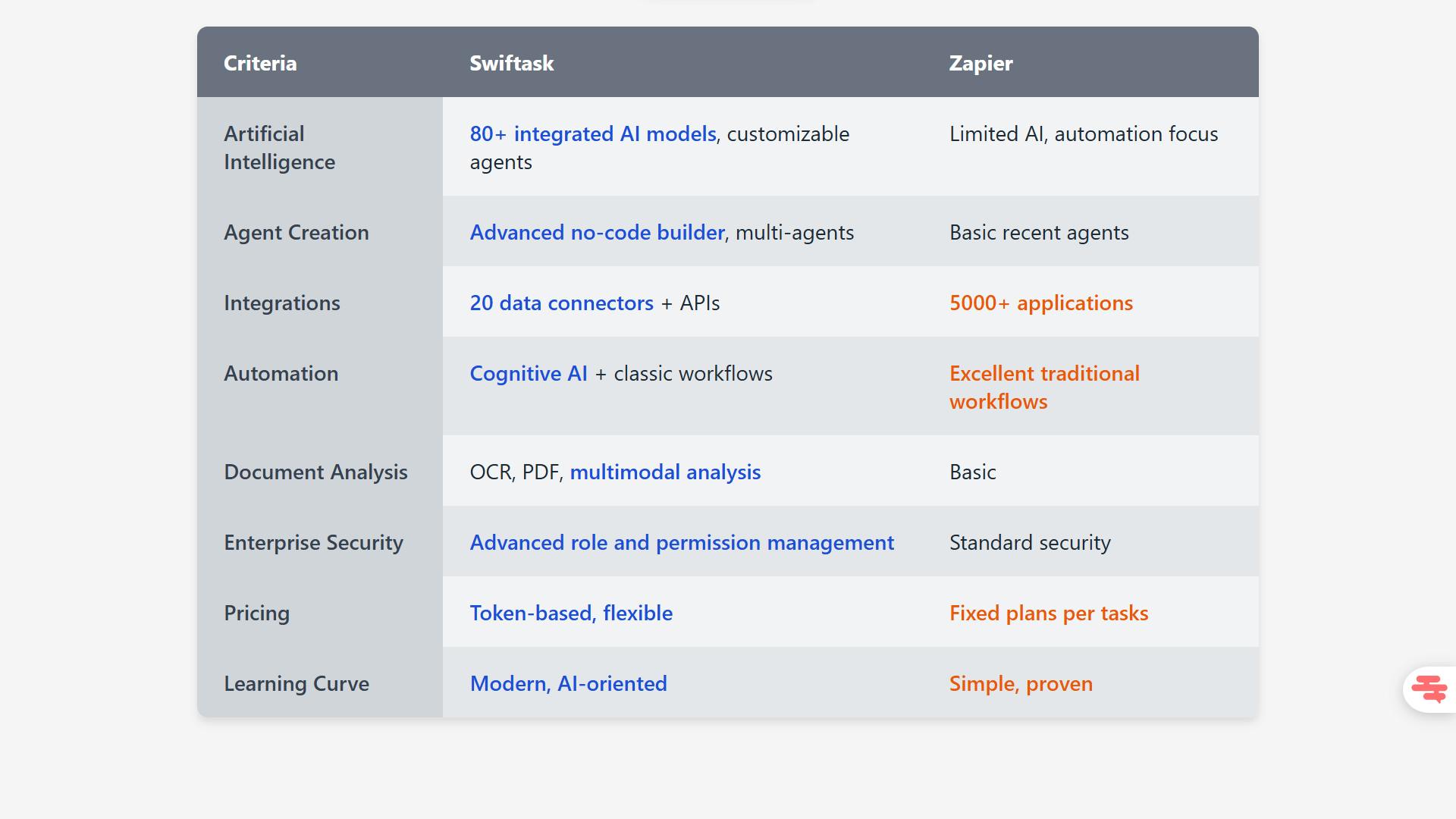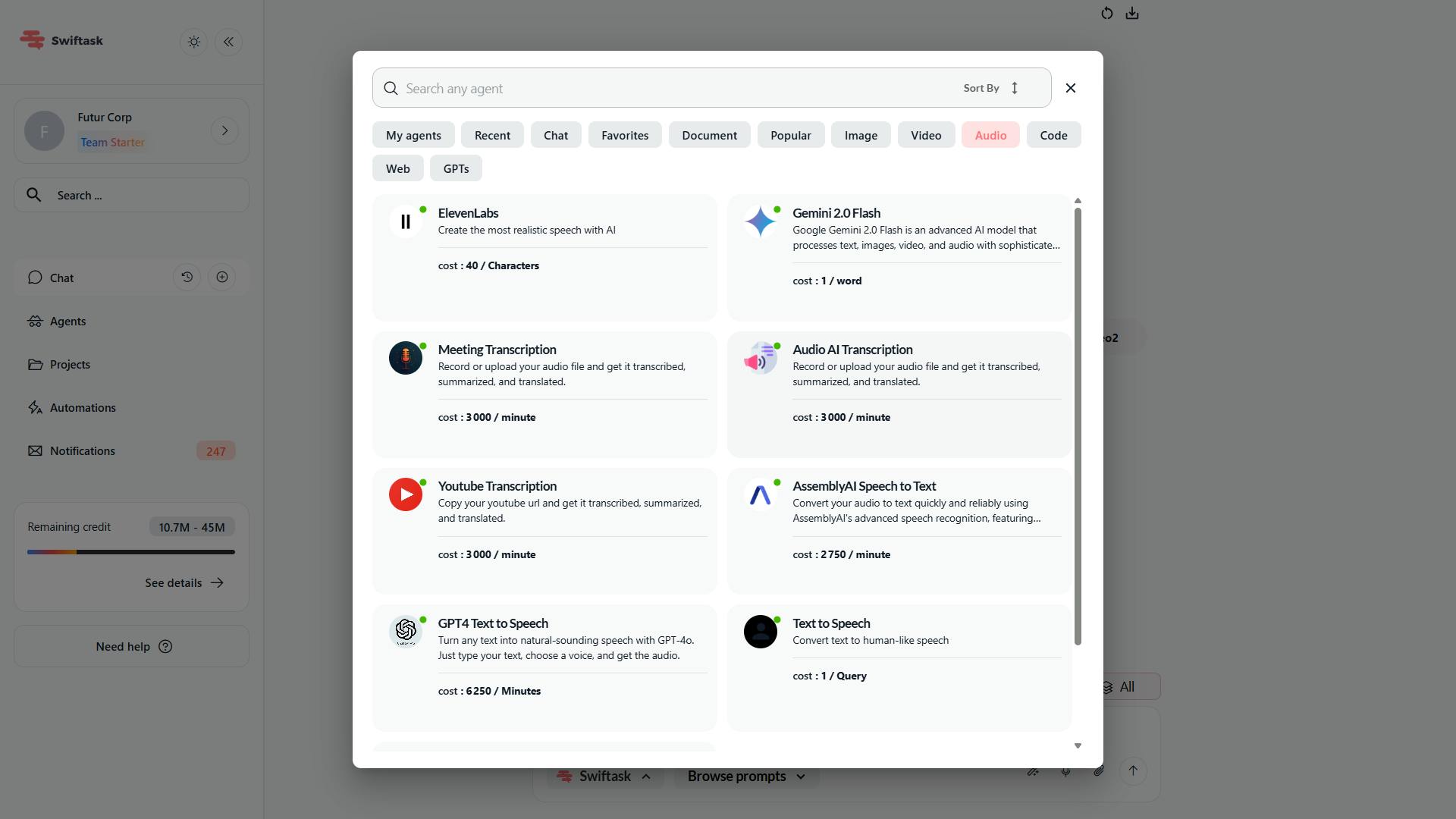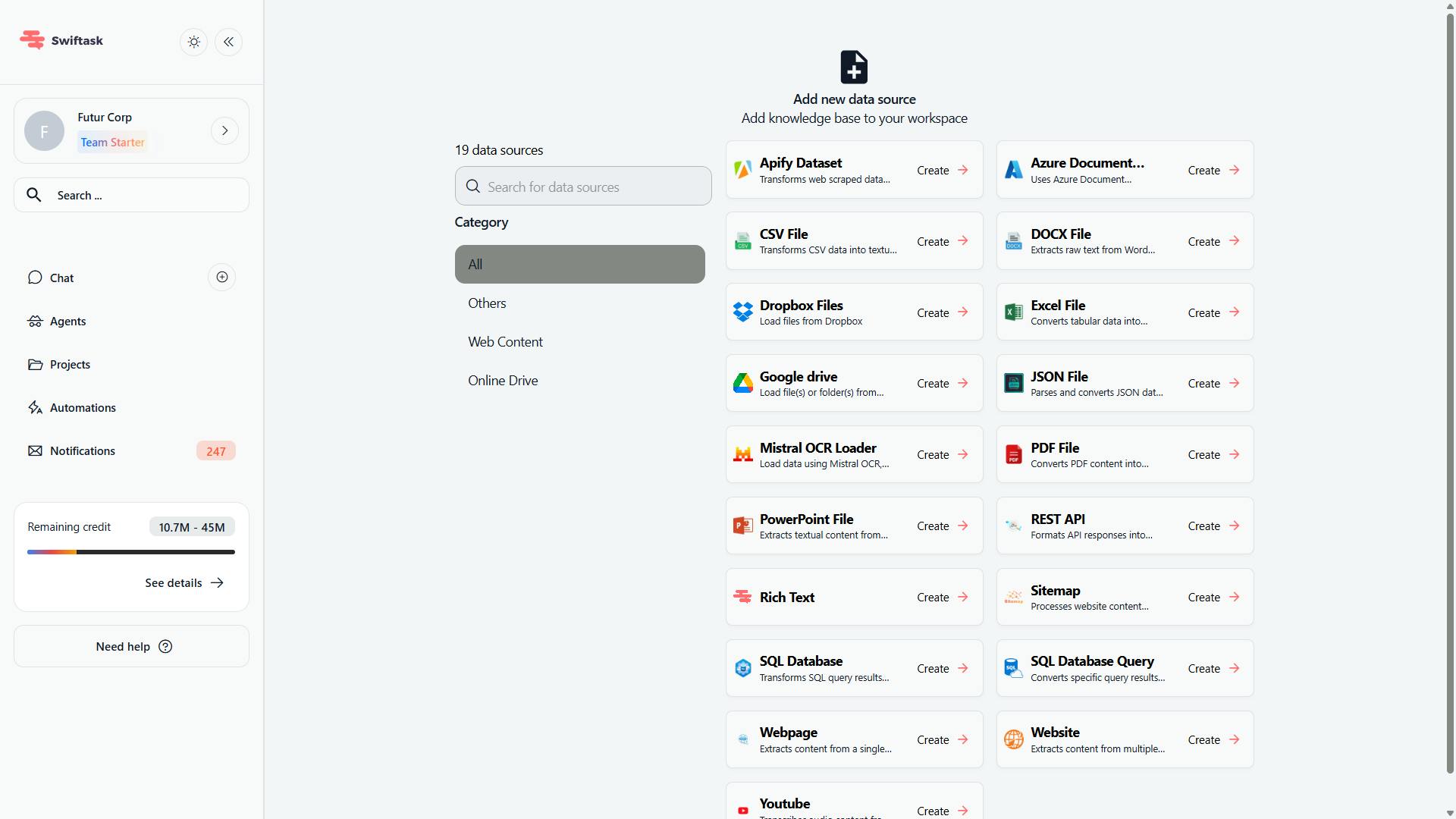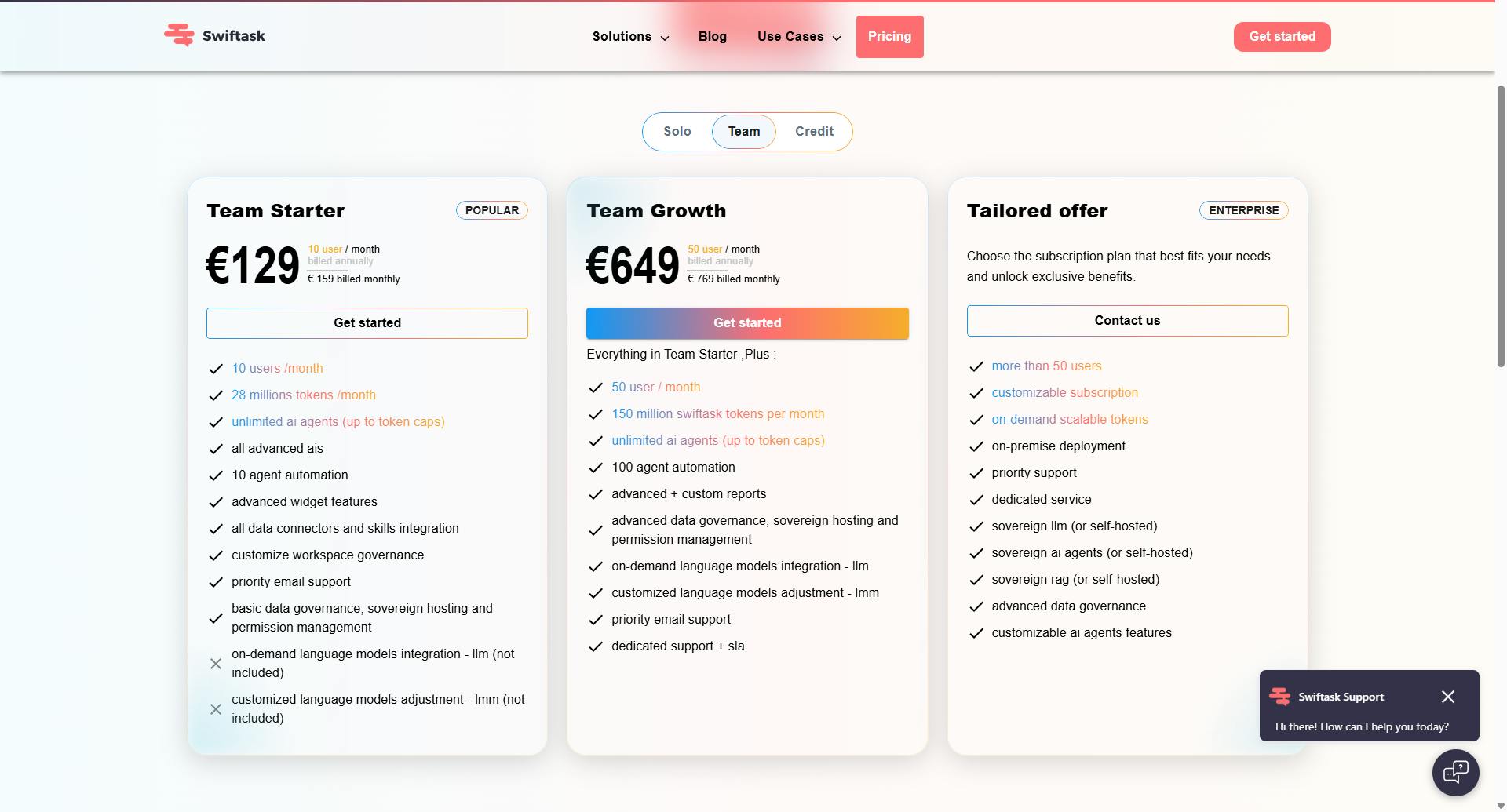Table of contents :
Swiftask vs Zapier: Platform Comparison
Ready to transform your business with AI?
Discover how AI can transform your business and improve your productivity.
Executive Summary: Two Complementary Automation Visions
Swiftask and Zapier represent two distinct approaches to enterprise automation, each addressing specific needs in the modern B2B market.
Swiftask positions itself as the next-generation intelligent automation platform, integrating 80+ advanced AI models (OpenAI o1, Claude 4 Sonnet, Perplexity Pro) within a unified ecosystem. Its strength lies in its ability to create personalized AI agents without code, offering a revolutionary approach to cognitive automation.
Zapier excels in traditional workflow automation with its 5000+ application integrations and proven ease of use refined over years.
Strategic Recommendation: Companies looking to integrate artificial intelligence into their business processes will find a significant competitive advantage in Swiftask, while Zapier remains a solid solution for classic automation of repetitive tasks.
Essential Features Comparison Table

Main Feature Analysis
Artificial Intelligence and Agents: The Swiftask Advantage
Swiftask revolutionizes automation by placing AI at the heart of its value proposition. The platform offers unified access to 80+ cutting-edge AI models, including the latest innovations like OpenAI o3, DeepSeek R1, and Claude 4 Sonnet.

The major asset lies in its no-code agent builder enabling the creation of specialized AI assistants with:
- Custom instructions adapted to business processes
- Integrated enterprise knowledge bases
- Modular skills to interact with external systems
- Embeddable widgets for websites and intranets
This approach allows companies to rapidly deploy business AI solutions without technical skills.
Zapier also offers AI agents, but this functionality remains recent and less developed than Swiftask's mature ecosystem.
Automation and Workflows: Two Complementary Philosophies
Swiftask combines cognitive automation and traditional workflows, offering a hybrid approach particularly suited to modern needs:
- Recurring automation (hourly, daily, weekly)
- Intelligent document processing (OCR, PDF analysis, data extraction)
- Multi-agent workflows for complex processes
Zapier excels in traditional automation with its multi-step Zaps and proven features like Zapier Paths for conditional flows. The platform remains a reference for simply connecting existing applications.
Integrations and Connectors: Quality vs Quantity
Swiftask prioritizes depth with its specialized data connectors:
- 20 native connectors (Google Drive, Dropbox, SQL, REST API, Azure, OneDrive)

- Multimodal integration (PDF, Excel, PowerPoint, YouTube, websites)
- Automatic cloud data source synchronization
- Open APIs for custom integrations
Zapier impresses with its breadth of 5000+ application integrations, covering virtually all SaaS tools on the market.
Swiftask's approach proves particularly relevant for companies with complex data analysis needs and intelligent information processing.
User Interface and Ease of Use
Swiftask offers a modern interface designed for the AI era, featuring:
- Unified AI hub to access all models
- Intuitive chat interface to interact with agents
- Integrated project management with automatic task generation
- Collaborative workspace system with role management
Zapier maintains its reputation for simplicity with a proven interface, particularly accessible to non-technical users.
Pricing Model Comparison
Swiftask adopts a token-based model, offering appreciable flexibility:
- Pricing based on actual AI resource usage
- Pro and Team plans with token distribution
- Transparency on costs per AI model
- Optimization possible according to needs

Zapier offers fixed plans by number of tasks:
- Free: 100 tasks/month
- Professional: $19.99/month (750 tasks)
- Team: $69/month (2000 tasks)
- Enterprise: custom pricing
The Swiftask model proves more economical for companies using AI intensively, avoiding overcharges linked to fixed plans.
Data Security and Governance
Swiftask distinguishes itself with its governance features in development:
- Custom role and permission management system
- Access management by workspace and resources
- GDPR compliance with data sovereignty control
- Advanced RBAC (Role-Based Access Control) features being deployed
This approach responds to growing enterprise requirements for AI governance and data protection.
Zapier offers standard security with encryption and data retention policy, sufficient for most use cases.
Sector-Specific Use Cases
Recommended Sectors for Swiftask:
- Consulting and professional services: client document analysis, intelligent report generation
- Research and development: complex data processing, automated technology monitoring
- Education and training: educational agent creation, multimedia content analysis
- Healthcare and legal: confidential document analysis with enhanced governance
Zapier Strengths:
- E-commerce: catalog synchronization, order management
- Digital marketing: campaign automation, lead nurturing
- Traditional SMEs: simple administrative automation
The Future of Intelligent Automation
Swiftask vs Zapier illustrates the market evolution toward cognitive automation. While Zapier excels in proven traditional automation, Swiftask paves the way for a new generation of solutions natively integrating artificial intelligence.
For visionary companies seeking to transform their business processes with AI, Swiftask offers a decisive competitive advantage through its intelligent agent ecosystem and advanced governance.
Final Recommendation: Evaluate Swiftask if your strategy includes AI as a differentiation factor. Zapier remains relevant for classic automation without advanced artificial intelligence needs.
The future belongs to platforms that democratize AI in enterprise while ensuring optimized governance - exactly the mission Swiftask has set for itself.
author
OSNI

Published
June 18, 2025
Ready to transform your business with AI?
Discover how AI can transform your business and improve your productivity.